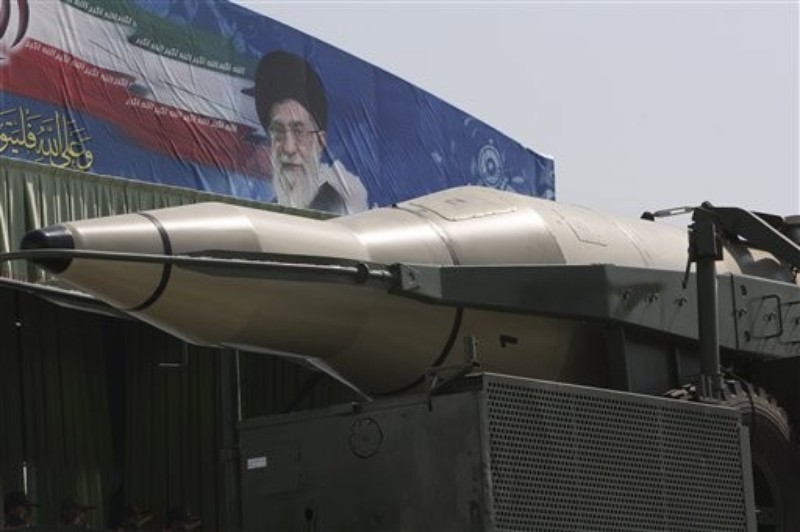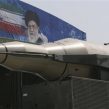
Russia Rejects WTO-Iran Linkage
Publication: Eurasia Daily Monitor Volume: 8 Issue: 208
By:

Last week, Russia’s Deputy Foreign Minister Sergei Ryabkov, in charge of relations with the US, arms control, ballistic missile defense (BMD) and proliferation, told Jamestown that US-Russian relations are not bad. Ryabkov expressed satisfaction that President Barack Obama fulfilled his promise to help Moscow overcome Georgian objections to Russia joining the World Trade Organization (WTO). This week, Moscow and Tbilisi signed an agreement to allow Russia’s speedy formal accession to the WTO before the end of the year. Since 2008, Russia has occupied the two Georgian breakaway provinces of Abkhazia and South Ossetia, formally recognizing them as independent states unlike most other nations including the United States. In the framework of the WTO negotiations, Georgia demanded that trade through the borders between Russia and the breakaway provinces must be internationally monitored. After three years of wrangling, a compromise was offered by Swiss intermediates and accepted by both Georgia and Russia (their diplomatic relations remain suspended since the war in August 2008). It is not clear, whether there will be any effective international administration of transit in and out of the breakaway regions – Tbilisi and Moscow have somewhat conflicting interpretations (Interfax, November 9).
According to Ryabkov, “Russia was not required to sacrifice anything in securing WTO membership and the overall results of Obama and President Dmitry Medvedev working together are impressive.” A senior US diplomat, speaking to Jamestown, agreed: “If Obama makes a promise, then he delivers,” and expressed hope that Russia may show its appreciation by reprimanding Tehran on its secretive nuclear program after the International Atomic Energy Agency (IAEA) published a report this week officially asserting for the first time that Iran was indeed preparing to produce nuclear warheads and fit them to long-range ballistic missiles.
The official Russia position, confirmed by Ryabkov, is against any new sanctions on Iran, while arguing that only patient negotiations may help persuade the Iranians to change their ways. After the publication of the IAEA report, an angry statement issued by the Russian foreign ministry dismissed it as false and provocative in practically the same wording used by Iran: “Previously known facts were deliberately doctored to create an illusion that the Iranian nuclear program had a military angle.” Moscow has accused the IAEA of “victimizing Iran” and ignoring Iranian attempts to cooperate on nuclear issues. Russia is worried that the IAEA report on Iran will “undermine the efforts of the international community to find a political-diplomatic solution to the Iranian nuclear problem” and is aimed at shooting down Russian initiatives to resume negotiations with Iran and remove sanctions (www.mid.ru, November 9).
The salvo from the foreign ministry may reflect an overall hardening of Russian policy as Vladimir Putin is poised to return to the Kremlin next spring. Last March, Putin publicly strongly criticized the decision by Medvedev to abstain in the UN Security Council vote that permitted the adoption of Resolution 1973, allowing a NATO air campaign which helped oust the Libyan dictator Moammar Gaddafi. Today Putin’s opinion is the official policy, with Medvedev effectively sidelined. According to Ryabkov, the West grossly violated Resolution 1973 and Russia will not accept any moves that may result in regime change in Iran or Syria.
Differences over BMD are another source of US-Russia tension, and negotiations to find a compromise have been extremely disappointing, according to Ryabkov. Russia is demanding written guarantees and specific limitations that would ensure any future US BMD “will not be aimed at Russia.” Ryabkov acknowledges that US and NATO BMD plans cannot possibly pose any threat to Russia until 2017 or 2018, so there is no need for Russia to respond with military deployments: “If they do not heed our demands, we will refuse to cooperate on BMD, but there is no inevitable tragedy, it is just bargaining,” he acknowledged; but Putin may not fully agree.
Putin presided over a meeting this week of ministers and defense industry officials in Sevmash shipyard in Severodvinsk on the White Sea. The meeting resolved a long running conflict between the defense ministry and the state-run United Shipbuilding Corporation (USC) on how to spend the 4.7 trillion rubles ($153.6 billion) that, according to Putin, have been allocated to revamp the Russian navy by 2020. The defense ministry had accused the USC of massively overpricing its produce. A compromise seems to have been reached, thanks to Putin applying pressure: contracts were signed, one last week, reportedly costing 94 billion rubles ($3 billion) and another this week worth 280 billion rubles ($9.15 billion). The contracts involve finalizing two Borei class strategic submarines and a Yasen attack submarine that are already essentially built and the production of five more Yasen submarines. The first and second Yasen attack submarines – Severodvinsk and Kazan – will cost 47 billion rubles ($1.54 billion) each, the follow-on four submarines – 41 billion rubles ($1.3 billion) each. The first two Borei strategic nuclear submarines – Yuri Dolgoruky and Alexander Nevsky – reportedly each cost 23.2 billion rubles ($0.76 billion). The relatively low cost of the strategic submarines compared with the Yasen attack submarines is the result of using stockpiles of Soviet-made components and hulls in their production. The St. Petersburg design bureau Rubin was granted 39 billion rubles ($1.28 billion) to continue to develop modernized Borei submarines that will carry 20 or more Bulava ballistic missiles instead of the Yuri Dolgoruky’s capacity to carry 12. The price of additional Borei submarines will be decided later (Kommersant, November 2; November 10).
All these prices are unofficial, since Russian defense expenditures are essentially secret. The submarines seem indeed overpriced as the defense ministry alleged, especially the Yasen attack submarines, armed with torpedoes and cruise missiles. During the production cycle the prices may easily grow further, since the USC is a monopoly and if Putin wants the submarines, he will be forced to pay more. Of course, these massive procurements are essentially against the US – there is no other adversary in the world worthy of such effort. Speaking at the meeting, Putin declared: “The execution of the unprecedented in terms of money and objectives armament program … will allow the creation of a grouping of modern maritime strategic nuclear submarines, buying surface ships and modernizing existing ones” (https://premier.gov.ru, November 9). The dream of military parity with the US seems to be back in favor, and Russia’s tone is changing correspondently.




